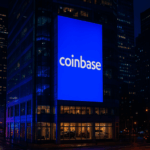In the rapidly evolving landscape of online retail in Latin America, Mercado Libre is asserting its position by allocating a substantial budget for Black Friday coupons. The company faces intensified competition from major global players, prompting strategic adjustments in its approach. This move is intended to enhance its competitive edge during a crucial sales period, where consumer attraction is paramount. As digital platforms vie for supremacy, Mercado Libre aims to reinforce its market presence through targeted investment, offering enhanced value to its users.
Mercado Libre’s current efforts echo strategies seen in previous years when competition in the e-commerce sector began intensifying. Historically, companies like Amazon (NASDAQ:AMZN) have implemented innovative tactics, such as partnerships with local firms, to gain a stronghold in the Latin American market. While Mercado Libre has previously focused on free shipping incentives, the shift towards substantial coupon investments highlights an adaptation to changing consumer expectations and the evolving marketplace dynamics.
How Is Mercado Libre Facing Increased Competition?
With emerging entities like Shein, Shopee, and Temu entering the market with competitive pricing strategies, Mercado Libre’s decision to invest nearly $19 million in coupons aims to position itself as a frontrunner in the region. Adjustments to its operational strategies, including the reduction of the free shipping threshold, are part of efforts to attract a broader customer base. The competitive landscape requires innovative solutions to meet shifting consumer demands, compelling Mercado Libre to explore various promotional avenues.
What Are Mercado Libre’s Recent Strategic Collaborations?
Recent collaborations, such as Mercado Libre’s partnership with Casas Bahia in Brazil, signify the company’s strategic endeavors to bolster its product range. By integrating offerings like appliances, electronics, and furniture into its platform, Mercado Libre aims to diversify its product assortment and improve customer experience. This partnership enhances accessibility to a wider range of products, further solidifying Mercado Libre’s standing in the market.
Despite the competitive pressure, Mercado Libre remains optimistic. The company acknowledges the ongoing challenge, emphasizing its historical resilience and adaptability in navigating industry shifts.
“We’ve been competing for many years not only with Asian platforms but also with other global industry leaders,”
the firm stated, reflecting on its prolonged presence in the market.
Moreover, the introduction of a B2B unit reveals Mercado Libre’s expansion beyond traditional consumer transactions. With over 4 million users enabled for wholesale purchases, this venture diversifies its business model and taps into new revenue streams, offering a more comprehensive service to its clients.
Investments in logistics and user experience have yielded promising results, contributing to a 34% year-over-year increase in items sold as of June. This growth underscores the impact of strategic initiatives in enhancing consumer engagement and purchase frequency.
“Mercado Libre’s commerce business continued to outperform the broader market,”
the company stated, highlighting its accomplishments across key regions.
As the e-commerce landscape continues to evolve, Mercado Libre’s adaptive strategies and focus on customer-centric solutions will be crucial in maintaining its market leadership. The integration of innovative practices and strategic partnerships connotes a proactive approach in tackling market challenges while enhancing user interaction. This strategic focus aligns with its overarching goal of sustaining competitive advantage in a dynamically changing environment.








